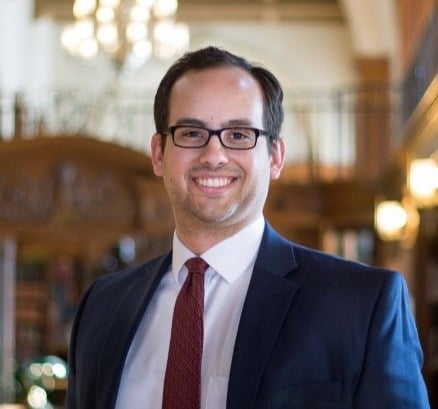If you work at a hospital, you’re probably aware that there is a major shortage of physicians right now. The same is not true for financial advisors, though. As the saying goes, there’s plenty of fish in the financial sea.
But with so many financial planners to choose from, it can be hard to know how to pick. So today, we’re rounding up our top tips for how to choose a financial advisor that will be responsive to your needs and goals as a physician.
Why do physicians need financial advisors?
So before we get into picking a financial advisor, it’s important to take a look at why you might want to hire one in the first place. The basic role of a financial advisor is to assess their clients’ financial needs and goals and give advice on topics like investments, tax strategies, and debt repayment.
Most people think about hiring a financial advisor once they're able to put away about 20 percent of their income into savings, which is a good benchmark to shoot for.
Here's a few common financial goals for physicians.
- Achieve financial independence. This means more than just getting off your mom’s family phone plan. Financial independence means having enough passive income to be able to afford your living expenses for the rest of your life. With the help of a great financial planner, many physicians can achieve this goal well before the standard retirement age.
- Pay off student loans. Paying off those pesky college and med school loans is a huge step on the way to financial independence (and probably lower blood pressure, too). Financial planners can help you strategize on the best way to ditch the debt, whether it’s getting a better interest rate, finding a loan forgiveness program, or something else.
- Buy a home. You might not think to consult a financial advisor about buying a home, but they can advise on things like the type of financing you should use, when to buy based on your financial health, and how much you can afford to spend without over extending yourself.
5 tips to find the right advisor
So now that you're saving about 20 percent of your pay and you're sure you actually need a financial advisor, here's a few tips to find the right one:
- Consider a robo advisor. If you’re just looking for some basic investing advice and planning, a robo advisor can be a good call. Robo advisors are available anytime, anywhere, which is great for people with busy schedules (lookin’ at you, residents!). These services are also available at rates that are more or less reasonable.
- Check their credentials. If you need more advanced services, then you'll probably need to find an actual person. You'll want them to be a fiduciary—meaning that they're legally obligated to act in your best interest. You'll also want someone with some solid credentials, like a chartered financial analyst (CFA) or certified financial planner (CFP). And just like MDs need CMEs, you’ll want to get a planner who stays up on the latest tax and retirement laws through continuing education.
- Understand the fee structure. So first of all, you should always be paying for financial advice from a planner. If the services are free, there could be some significant conflicts of interest going on, which could mean that the so-called planner doesn’t actually have your best interest in mind. On that note, you’ll want to know if your planner will be getting a commission on things like insurance sales or stock transactions. That can be a major red flag for their priorities. Lastly, finding a fee-only advisor can help you save money and understand exactly what you’ll be charged ahead of time.
- Shop around. Ideally, you’ll have a long-term relationship with your planner. So it’s probably best that you don’t dislike them. It’s also important that they’re either a generalist or someone who specializes in the specific types of services you need, like loan repayment, or retirement planning. So take some time to chat with a few planners and/or a few different firms to ensure it's the right fit.
- Search NextStop. NextStop is a new tool from flipMD that puts together a map of physician-recommended professionals. When you find a financial planner through NextStop, you can rest assured that at least one of your physician colleagues has had a great experience with them. So even if you do none of the above, you really should take 30 seconds to see if NextStop has a resource in your area.
There you have it! My top 5 tips for finding the right financial planner. Hungry for more info on finding a planner? Check out our recent blog on the topic!



Leave a Comment
Related Articles